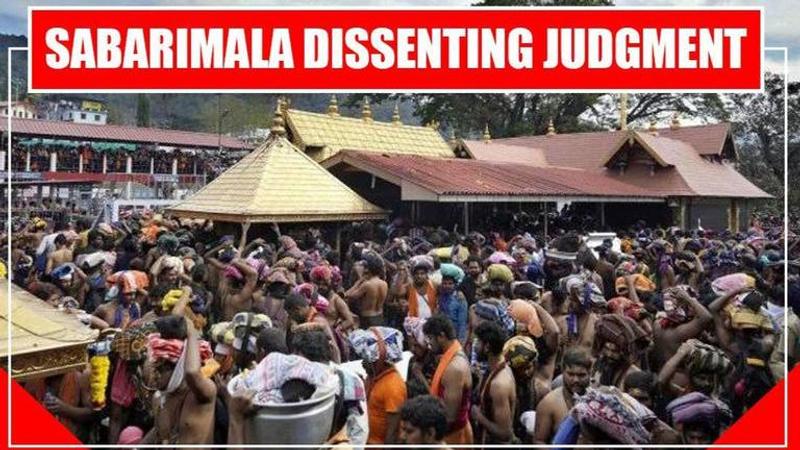Published 11:29 IST, November 14th 2019
Sabarimala review plea: Justice Nariman and Justice Chandrachud pen dissenting judgment
While an SC Constitution bench referred the Sabarimala review pleas to a larger bench, Justice Nariman and Justice Chandrachud wrote dissenting judgments.

While a 5-member Constitution bench of the Supreme Court referred the Sabarimala review pleas to a 7-member larger bench by a 3:2 verdict on November 14, Justice Nariman and Justice Chandrachud wrote dissenting judgments. Justice Nariman read out the dissenting judgment and stated that the issues of Muslim or Parsi women could not be clubbed with the Sabarimala matter as they were not before the court. He opined that the original judgment was based on a bonafide Public Interest Litigation which raised the issue about women being denied entry on the basis of their physiological features. Making strong remarks against the violent agitations following the original SC verdict, Justice Nariman deemed that while bonafide criticism of the judgment was permissible, thwarting the orders of the court could not be countenanced. He noted that once a judgment was pronounced, it was binding on all.
Multiple issues to be clubbed
While delivering its verdict, the majority judgment of the apex court clubbed the entry of women in mosques and the tower of silence, the legality of female genital mutilation in the Dawoodi Bohra community along with the Sabarimala issue. However, in light of no contrary orders from the Supreme Court, the petitions have been kept pending. There will not be a stay on the earlier judgment which allowed the entry of women between the age group of 10 to 50 years in Sabarimala temple, Kerala.
Conflicting opinions
On September 28, 2018, the SC lifted the ban on the entry of women belonging to all age groups in the Sabarimala temple. Justice Indu Malhotra pronounced the dissenting judgment in the case. She observed that it was not up to the courts to decide if such religious practices should be struck down. Justice Malhotra contended that rationality had no place in matters of faith. The 4:1 verdict had sparked off huge protests across Kerala. The Travancore Devaswom Board (TDB) which manages the shrine, argued that the SC could not interfere with a century-old belief. The ban on entry of women has been justified on the grounds that Lord Ayyappa, the presiding deity is celibate. On the other hand, the government of Kerala supported the verdict maintaining that religious practices that clashed with fundamental rights could be set aside. After hearing the review petition filed by the TDB, Pandalam Royal Family and a group of devotees, the Constitution bench had reserved its verdict on February 5.
Updated 12:18 IST, November 14th 2019




